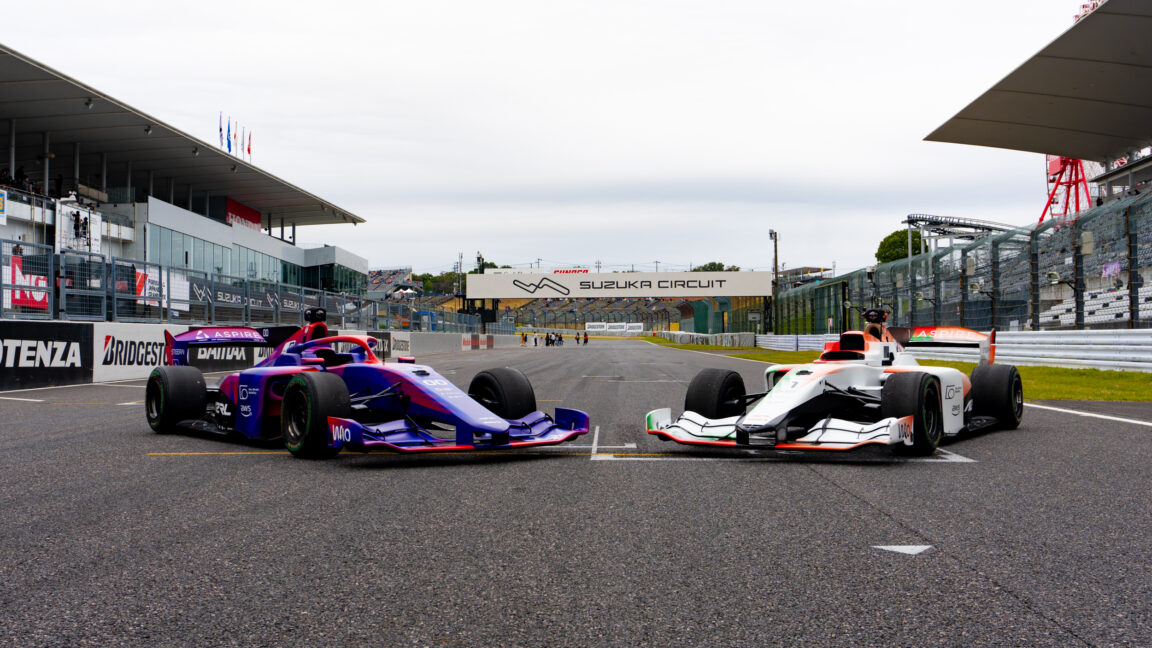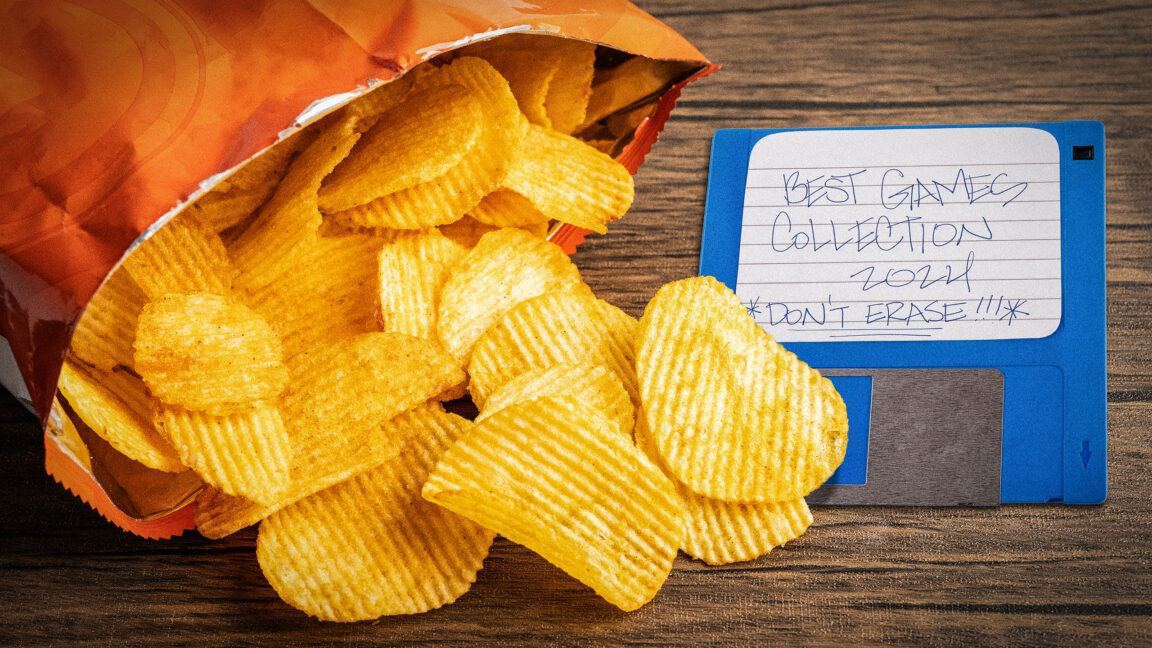Fashion
From Kyiv To Paris, Lilia Litkovska Makes High Fashion Into Fine Art

Line up of models from the LITKOVSKA Spring/Summer 2025 collection.
Courtesy of LITKOVSKA
Lilia Litkovska is fascinated by volume and proportion. She likes long elegant lines, but gently cut and fitted in the right places. It’s obvious that she’s thinking in silhouettes. She is the founder and designer of an eponymous brand, LITKOVSKA. When you look through the photographs of her work in this piece, I think you’ll understand why I think ‘precise’ is a great word to describe what she designs. “I love the oversized,” she told me, “and I start from oversized, and I love to do it. There is something about draping, something about draping the fabric. I love clothes. The feel of volume, and I love to create volume.” There is a traditionally masculine association with a strong shoulder. “I love this masculine shape on a woman,” Litkovska told me. “I’m sure that women in masculine shoulders look more sophisticated, and that it embellishes her femininity. When a woman’s shape is a bit hidden, the viewer can wonder.”
Litkovska is a Ukrainian designer who lives and works in Kyiv, which is the capital of Ukraine. She and I met earlier this month over zoom. We had a whole conversation about her brand, which is now 15 years old, and about what is coming next in professional life. Right now she’s preparing for the next Paris fashion week, where her collections have been on the event’s official schedule every season since 2017. I’ll tell you more about that in a little bit. She also has an upcoming work with Nick Knight, a collaboration called Flowers Know Better that will launch in early 2025. On top of that, she’s nearly always spreading her brand’s reach around the globe. “We continue to grow in the Japanese market,” she told me. In addition to Tokyo and other Japanese prefectures, LITKOVSKA can be found in London, Munich, New York, Paris and in many, many other cities. The lady is busy.
A look from the LITKOVSKA Spring/Summer 2025 collection.
Courtesy of LITKOVSKA
When we met, there was a hand painted sign in support of Mariupol up high on a walled shelf behind her. It wasn’t for me, it was obviously a regular part of the room. It would be impossible for any Ukrainian person to be unaffected by the devastation from this ongoing war, which resulted from at a least a decade of Russian aggression. But, like Elvira Gasanova or Yana Matias, Lilia Litkovska is unwavering in her determination to continue her work. She wants to make her country and her family proud. Given that she’s been showing her work in Paris since 2017, I feel certain that she already does. I still admire her courage and fortitude.
Let me give you some background information. On her mother’s side of the family, there are at least four generations of people who make or made clothing, before Litkovska launched her brand in 2009. On her father’s side, the family mostly had careers in math or hard sciences. As a child, Litkovska decided that fashion was what appealed to her heart. “I had an opportunity in easy reach,” she explained. “To sewing machines, pattern tables, patterns. Maybe I analyzed these, but it’s more than that. I love to express the meaning of my world. I love to express myself. Of course we need to understand the context and the situation in our country in general,” she explained to me. “It was the post-Soviet period and it was a terrible situation.” Her family, like many, many others, was greatly impacted by the ending of the Cold War. If you don’t know already, the Soviet Union dissolved in 1991, and Ukraine, one of the Post-Soviet states that declared their independence the summer of that year.
A runway look from the from the LITKOVSKA Spring/Summer 2025 collection.
Courtesy of LITKOVSKA
We all have core memories from our childhoods. When Litkovska was very young, she remembers visiting the atelier of her uncle. When she was about 12, she remembers wanting to work there. “I asked him to let me join his team after school,” she told me. “I can help with something.” But her uncle wanted her to focus on school undistracted, though he welcomed her to come back later. “I started to create for myself,” Litkovska explained, “and then for my friends until I started my studies at University.”
Even now, regularly showing in Paris, with her company building on its existing international attention, Litkovska is modest about her accomplishments. “I create clothing. I wear the clothes that are my work. But honestly, I didn’t see myself as a designer, and I don’t pretend I’m a designer. I just love to create interesting shapes, combine unexpected fabrics. And my uncle, who is like my teacher, loves to tell me, ‘Oh, my gosh, it doesn’t work together.’ And okay, okay. But I do what I do. And honestly, the music scene influenced me. ‘We are still not impressed,’ she said and laughed. “But, I love music. I saw the British and the American teen scene. Their use of apparel, and I loved it. How they expressed themselves, their view of life. And I love to explore music history.”
Runway looks from the LITKOVSKA Spring/Summer 2025 collection.
Courtesy of LITKOVSKA
In the very beginning, Litkovska would remake pieces second hand, always with her own pattern though. “When I went to study at university, I had excellent skills in mathematics.” Her family wasn’t exactly keen on her pursuing a fashion career at first. She thinks they may have been worried that by going after something she felt passionate about, especially in a creative industry, she wouldn’t have the stability or resources that would be available if she instead pursued a career in banking or economics. Like any family, Litkovska’s wanted her to do well at something, and with her innate math skills, fashion probably sounded more like a gamble. But she stuck to what she knew she wanted, attending a prestigious technical school on a scholarship. And that was where she began to find her first real clients, who at first were friends and classmates, but that was just the start. She also began to collaborate with musicians. “Step by step,” is how she described it. After graduating, Litkovska began working as a stylist and she designed costumes for a few Ukrainian films.
Fast forward to 2016, and she was taking some time to evaluate her brand and where it was, where she wanted it to go. She was thinking about what mattered to her. “My personal world,” is how she put it, that’s what she kept coming back to. And her values. After maybe a week of thinking, making notes, she decided that she needed a concise way to articulate who she is and what she does. Maybe an artist’s version of an elevator pitch. Because you must understand, Lilia Litkovska is an artist. If you relax your eyes and look at the shapes on the body that she creates, you will see the lines she draws in fabric. And those lines will remind you of something. That feeling is Lilia Litkovska asking you, “what matters?”
A runway look from the LITKOVSKA Spring/Summer 2025 collection.
Courtesy of LITKOVSKA
Please don’t misunderstand, this is playful work, it is not interested in beating your brow. I suspect that this is because of the woman behind the clothes. “I love to play with double meaning,” she told me. When Litkovska decided to double down on the things she knew to be true and important, she described the new goal to me like this: “I decided not to mask myself, and everything I have inside I put outside.” When fashion becomes art, it is not because of design decisions or palette and it’s not because of sales. Fashion is art when its purpose is far beyond a look. When it evokes an involuntary emotional response. That is what these clothes do to me. They make me think and they offer me questions. Beyond the undeniable aesthetic value, of course.
When we were talking, she told me about her Uncle’s “main rule,” something he told her long ago, which resonates just as much today. It is important to finish a garment on the inside. In addition to the outside, I mean, all the way, as finished as the parts everyone sees.. He wanted her to finish her work all the way, and not stop when the exterior was how she wanted it. Litkovska explained the perspective to me, but I knew the idea she was going to explain. “The inside shows what you are,” she told me. I’m not sure how much my lovely readers know about this aspect of apparel design and construction, the finishing part. It’s the idea of completing any one component of a garment, making everything clean and beautiful. When I was small, and my mother was teaching me to embroider, I received a similar lesson. My mother insisted that the correct way to work was to make sure your project’s “wrong side,” the back, looked just as pretty as the top or front. It changes the way a garment hangs, but it adds something intangible too.
A runway look from the LITKOVSKA Spring/Summer 2025 collection.
Courtesy of LITKOVSKA
The plan obviously worked, and in 2017 LITKOVSKA began showing collections on Paris Fashion Week’s official calendar. The first year she rented a small gallery with a courtyard to show her work, a collection inspired by David Lynch, Laura Palmer specifically. A model was lying down at the center of the presentation, covered with transparent material, Litkovska explained to me. “She was naked, but she was also covered with red hair, and different things from my inspiration. Outside, through the big gallery windows there was smooth rain. Oh, it was like a miracle, honestly. It was like muse inspiration. It was our first, and it was a very brave presentation. LITKOVSKA in Paris. And yeah, we start our history in Paris there.”
Most recently, for Spring Summer 2025, Litkovska showed her newest collection, on September 25, 2024. It is called Zhnyva, which means ‘harvest.’ A harvest happens only once or twice a year, Litkovska told me. “It’s a gift nature gives to human beings, treasures, nature’s treasures. At the same time, every human has a personal harvest. It’s good to ask yourself what is going on in your life, what we have, where we are, who we are, where we are moving.” Litkovska sees the harvest season as a time for reflection, and a time for gratitude, a period when it seems right to look for things to be thankful for. That recognition is the basis of some of her recent work.
A piece from ‘Flowers Know Better” by LITKOVSKA x Nick Knight.
Courtesy of LITKOVSKA
Generally, Litkovska begins her work on the Spring/Summer season at the end of the winter collection, which meant following her Paris showing of her Fall/Winter 2024-2025 collection, which was held on February 28th of this year. She brought with her a wooden box filled with shards of brick from a house which had been destroyed by Russian bombing, an evocative reminder of what was happening at home while she was in France. “I brought it with me from Kyiv to Paris to show that yes, we have a positive harvest. But we have a negative harvest too. I don’t know how we can stop all this aggression in the world. Maybe I put philosophy into fashion. but I can’t do it another way.” In Paris, after the exhibition, she collected all of these white slips of ribbon, on which she had asked attendees to write their wishes for Ukraine over the next year. “I brought them back with me to Kyiv, to share with our community.”
Lilia Litkovska loves her work. She loves creating something that is personal, with a message, a feeling that comes through in her designs. “In my job, I think I can inspire people to move forward and to create something themselves, something like this. I feel my creations, and during this season harvest I would like to share my creativity with others. In my job, I think I can inspire people to move forward and to create something themselves, something like this. I feel my creations, and during this season harvest I would like to share my creativity with others.” Lilia Litkovska loves her work. She loves creating something that is personal, with a message, a feeling that comes through in her designs. She’ll be bringing handwritten messages back to Paris when she goes again in early 2025, responses to the good wishes she collected a year earlier to bring home.
A look from ‘Flowers Know Better” by LITKOVSKA x Nick Knight.
Courtesy of LITKOVSKA
Flowers Know Better, which I mentioned at the start, will launch shortly after the Spring/Summer shows. “It’s a dream collaboration, of course,” Litkovska told me. It is an apparel collection, a collaboration between her and Nick Knight, the founder and director of the award winning British fashion website, SHOWstudio. About a year and a half ago, she began talking with Knight about finding something they could work on together, in support of Holger Homann’s Be An Angel, an international charitable organization that supports refugees around the world. The pair first met in person at a Pop Up in Berlin, where Be An Angel is based. They both had some ideas, and settled on a project that would raise money for Ukrainian children affected by the war. They decided that Knight would create a series of floral images with his iconic photography, reminiscent of a traditional British garden, then Litkovska would play with juxtaposition, find a beautiful way to work them into her contemporary designs. “Knight created the special artworks using yellow and blue, and some sunflowers,” Litkovska said, referencing both the national colors of Ukraine and its national flower. “Then we created 12 pieces to present. It will launch in February.”
Near the end of our conversation I had to ask a sort-of difficult question. I want to highlight the good work Ukrainian fashion designers are doing under unimaginable circumstances. This is something that I know in my heart is important, and I asked what she thought. “It is most important to ask,” Lilia Litkovska told me. “When people ask,” she explained, “when they are interested in what is happening in our country, you feel the support already.” Every Ukrainian citizen is grateful for America’s support, she explained, and for the Patriot air defense system designed for Ukraine by the Swiss. All levels of political, governmental or economic support for Ukraine is appreciated. “Every Ukrainian says a great big ‘thank you’ for your support of our country,” Litkovska said. “It is difficult to stop the world’s aggression, and with the context of where we live, this is the hardest time.” I’m hoping that 2025 will be the year this tragedy ends, and that the people of Ukraine will emerge independent and triumphant.










